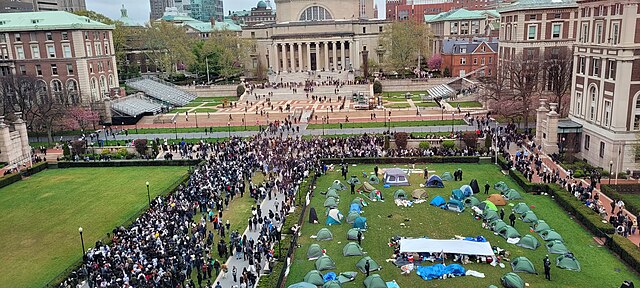EXCLUSIVE: The Daily Wire Speaks With Cody Wilson About His 3D-Printed Gun Blueprints, Free Speech, And The People Trying To Shut Him Down

Cody Wilson, a self-proclaimed crypto-anarchist who lives in Austin, Texas, is at the center of a developing philosophical and legal debate about the nature and limits of free speech, which has the potential to be a flashpoint in American political history.
Wilson’s blueprints for a 3D-printed handgun called the “Liberator” went online in April 2013, and were downloaded approximately 100,000 times before the State Department stepped in, claiming Wilson had violated International Traffic in Arms Regulations (ITAR) law, reports The Washington Post. Wilson subsequently sued the State Department, and in June 2018, the case was settled. Wilson received a license to have the blueprints appear on his website, DEFCAD.
Wilson didn’t have long to savor his victory, as multiple states sued shortly after the settlement with the State Department. As a result, a restraining order was issued by U.S. District Judge Robert Lasnik, forcing Wilson to once again pull his blueprints from the internet. The judge will make his verdict known before the restraining order expires on August 28.
The Daily Wire had the opportunity to speak with Wilson on Tuesday. The following is our exchange:
DW: What is a crypto-anarchist?
WILSON: It’s basically a strategics of anarchy, if you will. It was announced in the late-80s by Tim May and a bunch of the IBM guys who would later form what would become the Cypherpunk mailing list. They could see that in the late-80s with the rise of personal computing, and as bandwidth on the internet increased, and the internet began to penetrate society, that, if not outright anarchy, virtual implementations of anarchy would become possible, and these ideas were elaborated in Tim May’s crypto-anarchist manifesto. Of course, it begins to look like a prophetic document right now. He predicted WikiLeaks; he predicted Bitcoin and digital money all because of, in his words, strong cryptography pushes the government out.
Anybody who uses cryptography and can hide their identity and relies upon political strategies involving anonymity or hard-crypto is a crypto-anarchist. It’s a practice against state influence and control. This is the way the world works. It’s not revolutionary; it’s just that most people don’t know that it comes from a concrete discourse.
DW: Do you believe in the basic human right to self-defense?
WILSON: Yeah, although in my own discourse, I don’t put it that way. I don’t believe that the rights of man are somehow substantial, you know, that they actually exist – but of course, I believe that in liberal societies, you have the inherent right to self-defense.
DW: Do you believe in the Second Amendment as a check on government tyranny?
WILSON: Yes, I believe that an honest historical accounting of the Second Amendment makes obvious that it is a check on federal and state power, and an insurance that the individual will always have rights to military-grade weapons.
DW: Why do you believe your blueprints should be freely available?
WILSON: Because that’s how it works. They are freely available. All gun blueprints are freely available in any format, in any media. I’m not even fighting for the right to make them available because they are freely available.
DW: They are currently under an administrative lock right now. Those who have already downloaded them have them, but you’re not allowed to have them up on your website currently.
WILSON: Are they under lock? I mean, I’m not allowed to post or publish them, but that’s a different question than what you’re asking, which is, should these files be freely available for people to have, right?
DW: Yes.
WILSON: I mean, everybody – the state, federal judge – everybody admitted in court today that they’re out there and that they’re free to have. There’s nothing anyone can do about that.
DW: Do you think that there is a point at which information like your blueprints should be curtailed? For example, if there’s information for RPGs, explosive devices, or any kind of apparatus that could lead to a mass casualty event?
WILSON: To put it bluntly, no. I find there to be no meaningful philosophical or legal distinction that you can make to prevent people from getting access to data like this. There is no way to draw these lines that isn’t seriously injurious of your right to free inquiry and scientific expression. In the interest of liberty, there can be no law that we make or line that we draw.
We’ve already gone through this during the Cold War. There’s jurisprudence about his. We have the Pentagon Papers case; we have the Progressive case, which was literally a dispute about whether or not a magazine could publish some of the secrets and technical knowledge about creating the hydrogen bomb. We’ve gone through all that already, and we won. This is not some new threat to the public that now you can have a gun blueprint.
DW: Given that, why do you think people want to shut you down?
WILSON: Because they’ve accepted the symbolic terms of this engagement, which is simply that gun control is impossible in the internet age. It doesn’t work. If digital manufacture is possible, and there’s an ever-present internet, it’s not just our state, but any state cannot truly enforce gun control in this era. Spiritually speaking, the ambitions of gun control are dead. They have to run to court to contest this in the actual, but there are no amount of judges orders or laws to stop the fact that you can download the blueprints to AR-15s and teach yourself how to make it.
DW: So you believe the onus is on them to prove their case rather than on you?
WILSON: What case, right? Just dig a layer deeper on this. What are they even arguing? They don’t know.
DW: Can you expand on that a little bit?
WILSON: Sure, I mean from the point of view of the kitchen sink approach, they have to at once argue that there is no First or Second Amendment rights to even have this information in the first place. You have to begin from those sets of assumptions, which I think are dubious. You have to begin there, which is already a tyrannical, monstrous proposition – that there’s neither a First or Second Amendment protection of any information, that Americans don’t have the right to make guns, and that even if they didn’t have the right to make guns, that there’s not a speech interest in learning how to make a gun or having the plans for it. It’s already overwhelming just from a first principles standpoint.
Then there are the actual mechanics of this. What gives them the Article III standing to go into a federal court to contest this are hilarious claims that as sovereign states with gun control laws, they somehow have a right to get a federal judge to make an opinion about how the State Department enforces its export control restrictions. It’s laughable.
Pennsylvania, New Jersey – these states want to bring me into chancery courts and say that a public website somehow violates their state nuisance laws. These are the depths to which you have to drag yourself to even try to get a justiciable claim about any of this. And of course they’re willing to do it; they have the money to do it because it’s taxpayer money, and they have the interest, but they’re all actually deficient and insufferably stupid legal claims.
DW: What is your argument against those who say that your information is not protected under the First Amendment?
WILSON: Are those people the federal government? Because the federal government has given me a license to publish it.
DW: Do you empathize with those who are genuinely concerned about the new technology of 3D-printable weaponry and want to see it curtailed for safety purposes? I’m not speaking of the politicians or the people who are disingenuous or using this as a political prop.
WILSON: Their feelings of sincerity rely on sincere ignorance of the technology. The only thing you can do to relieve yourself of that ignorance, and perhaps your feelings, is to familiarize yourself with the state of the art. I’m not going to hold your hand and tell you that there aren’t any problems, but at the same time, the statements about what is technically possible are vast overstatements used mostly in bad faith to create bad law.
When I do see someone who’s concerned about this, most often it’s someone on TV who’s probably paid to be there. I’m used to regular misstatements about this technology for years from interested parties in the debate. No one else. Mostly, the public either doesn’t know about this or couldn’t care less about it.
DW: The ruling is expected to expire on the 28th, correct?
WILSON: The judge will rule by Monday, he said.
DW: What do you expect?
WILSON: I expect he’ll issue some type of preliminary injunction.
DW: Do you believe that you will ultimately prevail in this legal battle?
WILSON: Remember, this is one of many. This is the case in Washington. I have three parallel cases in other states. In this case, yes, we will ultimately win because the feds are the main defendants. The United States government isn’t going to allow – the president isn’t going to allow states to somehow get some kind of say in the foreign affairs exclusion.
DW: Is there anything you want readers to know that media outlets haven’t asked?
WILSON: I’d like your readership to know that yesterday, I began fundraising. It’s probably going to cost about half a million dollars to take care of all this. I just want people to know that we’re raising money, spread the word, and share the video. I’m only going to be able to do this with other peoples’ help because, of course, I don’t have institutional support. I’m not the NRA, and these groups don’t have any interest in this case anyway.



